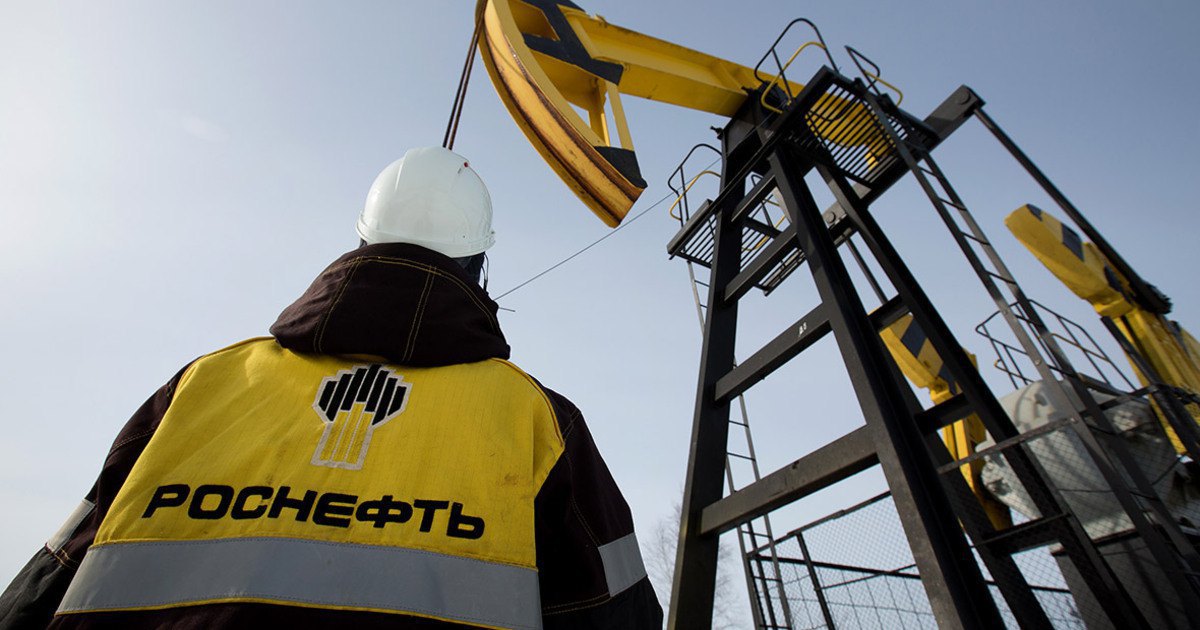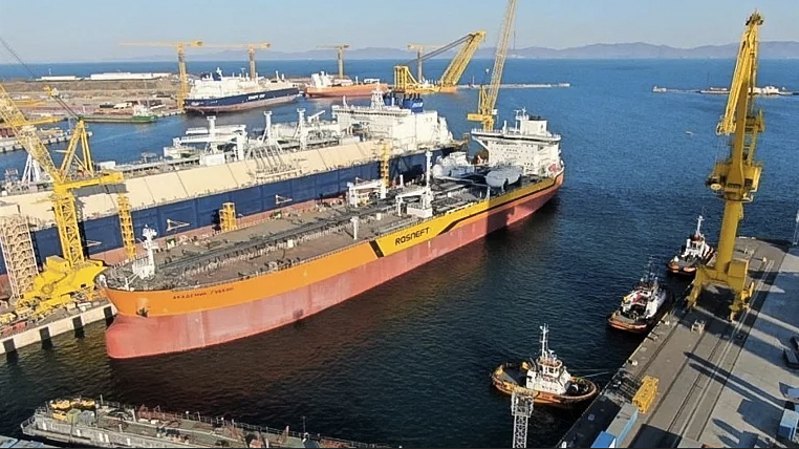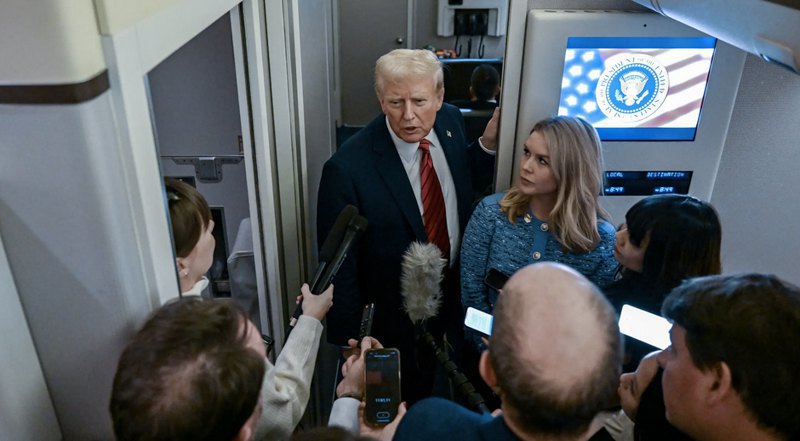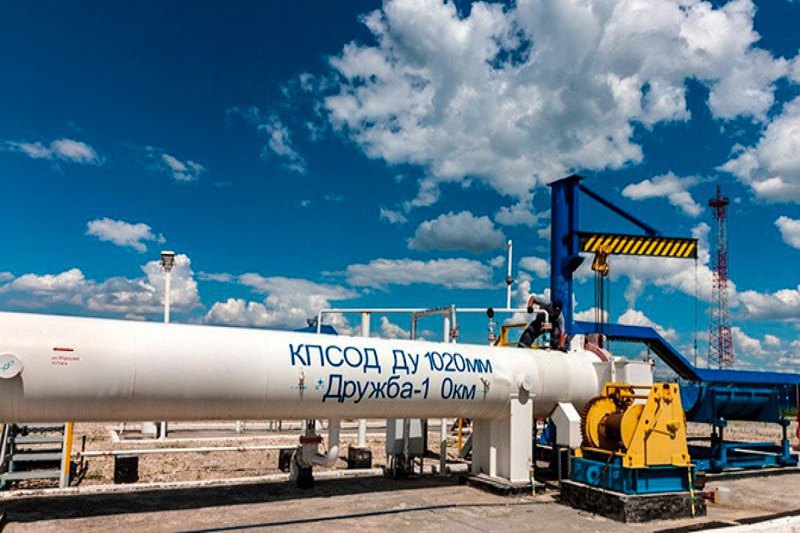
Russia is losing buyers
India and China have suspended purchases of Russian oil, Reuters reported, citing traders. This likely does not mean a complete halt to trade but rather a temporary freeze on signing new supply contracts for March.
Russia’s energy trade with China and India has partially stalled due to US sanctions on the Kremlin’s shadow fleet. As a result, freight rates have risen, increasing the overall cost of oil transactions.
Sanctions against the shadow fleet were introduced on 10 January by the previous White House administration. Joe Biden signed the executive order imposing these restrictions in the final days of his term. Russia felt the impact immediately, as tanker owners began refusing to cooperate with Moscow on a large scale.
“Barbados and Panama will strip more than 100 tankers from Putin’s shadow fleet of their flags. Leading Western nations imposing sanctions on Russia are now joined by small but influential states in the global shipping industry,” said Vladyslav Vlasyuk, the Presidential Commissioner for Sanctions.
Overall, sanctions are crippling much of Russia’s shadow fleet. On 19 January, the US Treasury expanded restrictions to cover 183 tankers, some of which were transporting not only Russian but also Iranian oil.
The US has also sanctioned insurance companies working with Russia, further complicating oil transportation. This has caused shipping costs for Russian oil to increase by up to five times in some cases.

“If Russia sells oil below market prices, it will find buyers. Right now, oil is priced at $80 per barrel, and if Russia offers a $10 discount, it will still be purchased. They will find ways to bypass sanctions—using neutral tankers or conducting ship-to-ship transfers at sea. But if the market price drops to $45, Russia won’t have room for discounts anymore because it will be losing money,” said Oleksandr Kharchenko, director of the Energy Research Centre.
Estimates suggest Russia’s shadow fleet transports up to half of its total maritime oil exports.
Every third barrel of oil imported by India comes from Russia. In China, Russian oil now accounts for 20% of total imports.
For now, suppliers are still fulfilling existing contracts, with oil shipments to buyers due by 27 February and payment transactions to be completed by 12 March.
According to analysts at the Razumkov Centre, Russia earned around $130 billion from oil exports last year—an amount nearly equal to Russia’s military budget.
The European Union is looking to follow the US in targeting Russia’s shadow fleet. Ahead of the invasion’s anniversary, Brussels is preparing a sweeping sanctions package, which includes restrictions on more than 70 tankers carrying Russian oil. However, a final decision has yet to be made, as the European Commission must overcome opposition from Hungary and Slovakia. Brussels is exploring mechanisms to bypass the veto power of Viktor Orbán and Robert Fico and aims to implement the 16th sanctions package against Russia by 24 February.

The US president may play a key role in this process. At least in the case of the Hungarian veto, his stance could be decisive, as Viktor Orbán would likely avoid openly opposing Donald Trump.
Another major blow to Russia could come in the form of a tax on ship passage through the Baltic Sea. For now, this is only a proposal by Estonian Defence Minister Hanno Pevkur. However, such a measure would address two issues at once. First, it would further raise transportation costs for Russian oil and other products. Second, the revenue from this tax could be used to repair damaged submarine cables, which have been increasingly targeted in recent incidents.
A floating oil disaster
Russia’s shadow fleet is not only a major source of revenue for the Kremlin but also a serious environmental threat. The tankers used for transporting Russian oil are outdated and lack proper technical inspections.
A recent incident off the coast of France underscored this danger. On 23 January, the Russian tanker UNITY was caught in a storm and stalled while carrying 100,000 tonnes of oil. The vessel ultimately made an emergency return to Russia, narrowly avoiding an environmental disaster. A similar event occurred in 2002 when a tanker carrying 80,000 tonnes of oil suffered damage.
“The spill was the worst environmental disaster in the history of Spain and Western Europe. Thousands of kilometres of the Atlantic coastline were affected, and 300,000 volunteers from across Europe worked to mitigate the consequences. The total damage is estimated at four billion euros,” said Andriy Klymenko, Director of the Black Sea Institute for Strategic Studies.

Russia uses these aging tankers to transport not only oil but also other petroleum products, such as fuel oil. In December alone, two tankers sank in the Black Sea, causing significant environmental damage. According to Greenpeace Ukraine, up to 4,500 tonnes of fuel oil leaked into the sea. By January, the spill had reached the Odesa coastline.
“The consequences of this environmental disaster needed to be addressed immediately, but the Russian occupiers failed to act, showing at best negligence and at worst criminal inaction. <…> The EU must urgently add the shadow fleet to its sanctions lists, as such accidents could soon become routine along European coasts,” the organisation stated.
The second US warning
On 27 January, a crucial meeting in Riyadh could have influenced the course of the Russian-Ukrainian war. Leading oil-exporting nations—Saudi Arabia, Iraq, and Libya—gathered to discuss how to respond to Donald Trump’s statements. For the second time in a month, the US president publicly called for reducing Russia’s oil revenues by driving down global oil prices.

“When the invasion began in 2022, the Saudis had the opportunity to crash oil prices. Instead, they chose not to and even profited from the situation. What happens now depends on several factors, particularly Saudi Arabia’s outlook on Trump,” said Serhiy Danylov, Deputy Director of the Centre for Middle East Studies.
Trump first made his demand during an online speech at the World Economic Forum in Davos and later reiterated it in an interview with the American press.
His main target is OPEC. If member countries significantly increase production, oil prices will drop, cutting into Russia’s budget. However, no such decision was made during the Riyadh meeting, and it remains unclear if any agreements were reached.

Following Trump’s statements, oil prices declined slightly but did not collapse. On 29 January, the price of a barrel dropped by just 18 cents. One contributing factor is the increase in US oil reserves, as Trump has pledged to boost domestic production.
The US has previously attempted to limit Russia’s oil revenues. Joe Biden’s administration imposed a $60-per-barrel price cap, but Russia found ways to circumvent it, rendering the sanctions largely ineffective.
The new White House administration is now pushing for a lower threshold. According to US Special Representative Keith Kellogg, setting the price at $45 per barrel could force Russia to negotiate.
Kyiv, however, argues that Russian oil should be priced even lower. Andriy Yermak, head of the Ukrainian Presidential Office, insists that the price must drop to $30 per barrel to deprive the Kremlin of funds for the war.
Druzhba pipeline still operational
While the US is tightening sanctions on Russia’s shadow fleet and pressuring OPEC, Ukraine continues to allow the transit of Russian oil to the EU. The main buyers—Hungary and Slovakia—are led by pro-Kremlin prime ministers.
The transit contract for Russian oil through Ukraine remains in effect until the end of 2029, unlike the gas transit agreement, which expired last year.

The Ukrainian government argues that stopping oil transit via the Druzhba pipeline would be too costly. Prime Minister Denys Shmyhal has warned that unilaterally terminating the agreement could lead to Russian lawsuits in international courts, demanding compensation. He also claims that halting the pipeline would violate Ukraine’s Association Agreement with the EU.
“This is nonsense! What lawsuits or violations are we talking about? The first step toward stopping the pipeline was already taken last summer when sanctions were imposed on Lukoil. But instead of reducing oil transit, volumes actually increased. It was all a show to legally reclassify part of the pipeline’s supply as ‘Hungarian oil’,” said Ilya Neskhodovskyy, Head of the Analytical Department at ANTS.
Each year, Ukraine transports 14–15 million tonnes of Russian oil, generating around $6 billion in revenue for Moscow—comparable to what Russia once earned from gas transit through Ukraine’s pipeline network. In return, Ukraine receives only $200 million in transit fees, and even this amount is reduced by transportation costs, including electricity expenses.








